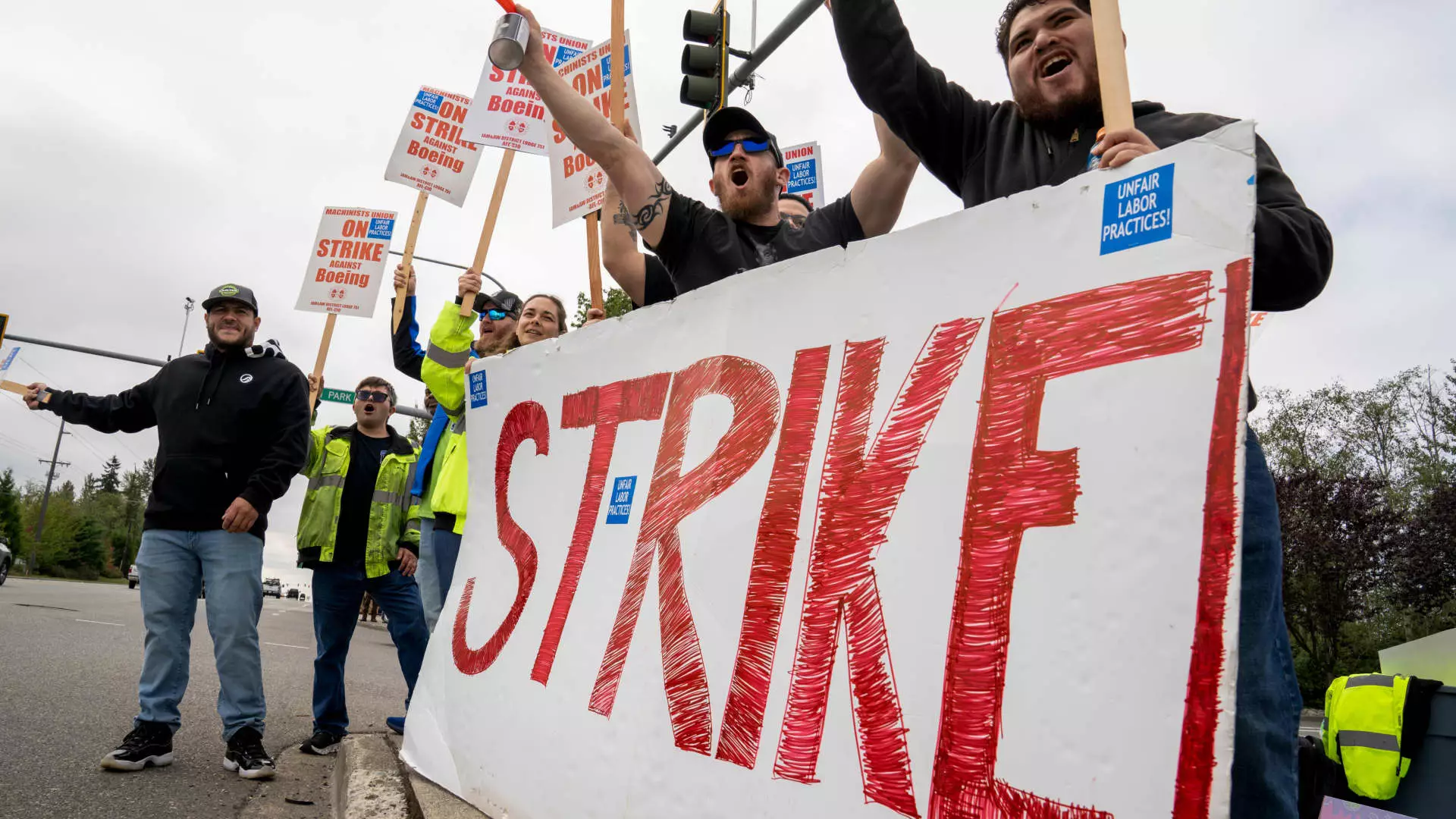Boeing is currently facing a significant labor dispute as the machinists’ strike stretches into its second week, severely affecting aircraft production. Over 30,000 seasoned workers, represented by the International Association of Machinists and Aerospace Workers, initiated the strike after overwhelmingly rejecting a previous contract proposal. This labor action marks Boeing’s first major strike since 2008, highlighting the precarious state of labor relations in the aerospace industry, especially amid rising living costs and economic uncertainties.
In a bid to resolve the ongoing strike, Boeing recently announced its “best and final” contract proposal. The modified offer includes a notable increase in general wages—proposed at 30% over the next four years, a substantial boost from the original 25%. Alongside this wage hike, Boeing reinstated annual bonuses and increased the ratification bonus from $3,000 to $6,000. The company also improved its 401(k) matching contributions. This strategic move suggests that Boeing is acutely aware of the necessity to offer competitive compensation to avert a prolonged labor stoppage.
The machinists’ union is currently reviewing Boeing’s updated contract offer. Union representatives voiced disappointment over last week’s negotiations and emphasized that Boeing had the capability to provide better proposals. This sentiment underlines a critical tension: while Boeing is attempting to enhance its offer, union leaders believe it does not sufficiently address the ongoing cost-of-living crisis faced by workers in areas like Seattle. The wage increase, while significant, still may not match the inflationary pressures confronting workers, leading to increased dissatisfaction.
The labor strike’s economic ramifications are considerable. Analysts estimate that Boeing is losing approximately $50 million daily due to halted production. With mounting pressures on the new CEO Kelly Ortberg, a resolution is imperative, not only to stabilize production but also to maintain Boeing’s credit ratings, which are at risk of downgrade due to prolonged industrial action. The company has initiated cost-cutting measures, including furloughing nonunion workers and imposing hiring freezes, to mitigate financial losses.
Boeing’s struggle reflects a larger trend in labor relations, where workers are increasingly demanding fair wages that align with rising living expenses. The overwhelming 94.6% rejection of the prior contract highlights a shift in worker sentiment—a clear message that inadequate compensation amidst escalating costs is unacceptable. Many machinists are already preparing for extended strike action by seeking alternative employment opportunities, illustrating a growing resolve among the workforce.
Boeing’s decision to enhance its contract offer represents a pivotal moment as it navigates the complexities of labor relations and economic realities. The outcomes of negotiations with the machinists could set a significant precedent for the aerospace industry and affect future labor dynamics. As both sides engage in discussions, the urgency for a resolution grows, necessitating that Boeing not only addresses immediate concerns but also reassesses its long-term approach to workforce satisfaction and compensation strategies. The stakes have never been higher for the aerospace giant, with both its future production capabilities and its reputation as an employer in jeopardy.


Leave a Reply